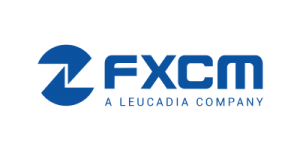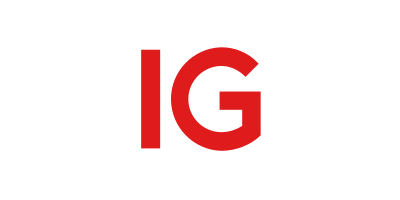Decided to invest in Forex? The next thing you will surely want to do is choose a broker, but since there are so many and with so many attractive offers, which one to choose? This can be a stressful task, so in this article we will show you how to choose a Forex broker, but not just any one, but one that suits your needs.
In recent years, the foreign exchange market has become very popular. This is the result of the development of the internet and new technologies, which has undoubtedly aroused great interest from small traders who were previously excluded from this huge market. The main impediment was that most of the trading is done in the interbank market and cannot be directly accessed by retail traders.
However, for several years this problem has been corrected by currency operators or brokers. They have created a market for retailers and at the same time have served as intermediaries with wholesalers. As a result, the rise of Forex has brought with it a wide range of brokers that offer their services to investors around the world. It is possible that you may feel overwhelmed by the large number of them that exist and in addition, not all of them have the same quality in the services they offer. So, the big question would be, how do I choose a broker? Under what criteria?
We will start from the principle that the best broker is the one that best suits your interests. It shouldn’t be the best on the market or the best for others, it should be the best for you. Certainly, it is a decision that should not be taken lightly to try to find the one that offers the best trading conditions, the best services, the best customer support and all this with reliability and security. Dedicate first of all the necessary time to this selection, if you make a mistake, you could regret your decision in the future.
Here is a detailed guide to choosing a Forex broker with the most determining factors. First, we will see what a broker is, then we will analyze the factors to evaluate its reliability, and finally those of the quality of its service.
- What is a Forex Broker?
- Broker reliability
- Evaluation of broker services
- Account types, minimum deposit and requirements.
- Trade size and leverage
- Investment instruments available
- Trading Platforms and Allowed Strategies
- Allowed Strategies
- Analysis tools
- Technologies used
- Automatic Trading and Copy Trading
- Demo accounts
- Speed and stability in order execution
- Spreads, commissions and rollover.
- Customer service and training
- Deposits and Withdrawals
- Types of Brokers
- How to choose a Forex broker? – Conclusion
What is a Forex Broker?
A broker is a financial institution that executes the orders of traders in the markets. They act as intermediaries between buyers and sellers by offering market quotes that they receive through their various liquidity providers. For this service they charge a commission, which is usually included in the spread. Forex brokers have trading and analysis tools, news service, alerts, among other services.
They require a license to practice, and are regulated and licensed by the regulatory agencies in which they reside. They are also responsible for the security of funds belonging to their clients.
They regularly not only provide access to the forex markets but also to some of the other assets including precious metals, stocks, commodities, indices, cryptocurrencies, CFDs bonds, options and ETFs.
Broker reliability
Reputation, regulation, solidity and guarantee of the funds.
To choose the right broker to trade Forex, you should start by analyzing the reliability of the company. For that, among the most important issues to consider are customer reviews, licenses from regulatory agencies, strength and experience of it. Remember that the broker will have your money and will be in charge of executing the operations that you request.
Reputation
Investigating the reputation of the broker is very important. This can be done by searching the Internet for specialized sites that offer broker profiles, forums, and investor reviews. You can also exchange experiences directly with people who have been trading Forex for a long time.
Among the topics to investigate are those related to the withdrawal of funds, customer service, requotes, execution of operations and others that you can find throughout this article.
Customer reviews
A very useful way to analyze the reputation of a broker is to look for comments and opinions from experienced investors. These are decisive for those who start in the Forex market.
The analysis of this aspect must be deep. There may be an isolated client with problems at a certain moment, we know that it is very difficult to have all the clients satisfied all the time. But as a rule there should not be a lot of problems, and even less in important matters. Now, it is not correct to trust everything that is written either, on the one hand traders can unfairly blame the broker for their failures and on the other hand there can be positive reviews paid by brokers.
Transparency of the broker’s website
Something very useful before opening an account is to thoroughly review the broker’s website. Special attention should be given to the transparency of the information published on issues such as trading conditions and contact procedures for claims or problem solving.
Regulation
Regulation and compliance is possibly the most important factor in choosing a broker. Regulatory bodies issue a series of strict compliance rules that ensure transparency, solvency, legality and correct marketing by companies.
It is true that the mere fact that a broker is regulated does not automatically make it a reliable company, but it is undoubtedly an extra guarantee for investors funds. On the other hand, there are so many regulated brokers these days that there is no need to take a risk with one that is not, no matter what they offer.
Today there are several regulatory bodies and the rules vary between them. As you might expect, in some cases the rules may be stricter than in others. Among the most recognized agencies are those in the following table:
| País | Siglas | Agencia |
| United Kingdom | FCA | Financial Conduct Authority |
| Spain | CNMV | Comisión Nacional del Mercado de Valores |
| Germany | BaFIN | Bundesanstalt für Finanzdienstleistungsaufsicht |
| Cyprus | CySEC | Cyprus Securities and Exchange Commission |
| Switzerland | FINMA | Eidgenössische Finanzmarktaufsicht |
| Australia | ASIC | Australian Securities and Investments Commission |
| United States of America | NFA | National Futures Association |
| United States of America | CFTC | Commodity Futures Trading Commission |
As expected, the rules make regulated companies strive to provide correct trading conditions to their users. On the contrary, if they do not comply with what is regulated, they can be fined or, in extreme cases, even lose their license.
Liquidity level
Every serious broker must have a good level of liquidity. This way you will have enough capital to smoothly support all operations, large or small. One without the appropriate level of liquidity is not very reliable.
In this sense, the best companies have suitable liquidity providers, which includes several of the main banks. When choosing a Forex broker, find out if they have providers that allow them to maintain a good level of liquidity under any market conditions.
Solidity
To find the degree of solidity of a broker, you must investigate issues such as years that they have been operating, net worth, number of clients, number of employees and number of offices around the world. This could guarantee us, among other things, good customer service in different languages and security of our funds.
Guarantee of funds
The guarantee of funds is closely related to regulation. Regulated brokers must comply with various requirements designed to protect client funds. Among others is maintaining a minimum capital in liquid form and segregating customer accounts.
On the other hand, in an extreme situation, regardless of whether we choose a reliable and solid broker, there could be external circumstances that could make it go bankrupt. Therefore, although this risk may be minimal if it is regulated, it would be better if it is attached to a guarantee fund for investors.
Many governments guarantee a certain maximum sum of money in case of bankruptcy of the broker. Among them are those from the United States, Japan, the United Kingdom, Spain and Cyprus. In general, the member countries of the European Union must guarantee at least 20,000 Euros, although there are some where it is more, as in the case of Spain.
Evaluation of broker services
In addition to reliability when choosing the best broker, their services must be evaluated and how they fit our needs.
Account types, minimum deposit and requirements.
Before opening a trading account, it is important for the trader to analyze how much money is available for opening the account. Several types of trading accounts are usually offered, but they differ from each other in the minimum deposit required to start. They also vary in terms of products to trade, trading platforms, conditions and execution costs among other characteristics. These accounts are adapted to different types of strategies and available capital, although trading conditions tend to improve with increasing capital requirements.
Account types vary from company to company, but among the most traditional are Micro, Mini and Standard. Micros have initial deposits of $100 or less and are a good place to start testing your skills until you gain experience. In contrast, the Mini can have an initial deposit of between $200 and $1,000 while the standard accounts require more than $1,000. Some also provide Premium and VIP accounts with some privileges and benefits, such as enjoying individualized service. Of course these have a drawback, and that is that the deposit requirements are higher.
Certainly the minimum deposit can make a big difference when opening an account. In this aspect, you can find from brokers that require a minimum deposit of $10 to others that require one of $10,000. Although this is not the only thing to take into account, there is also the minimum size required per operation. If the minimum size per trade is very high and the trader deposits little money in the trading account, he will have very little margin to manage the risk of his trades. But don’t worry, nowadays it is very common in brokers to allow fractions of lots, in this way the operator can choose the size of the transaction according to his preference.
Trade size and leverage
The size of Forex trades is expressed in units called lots. A standard lot refers to 100,000 units of the base currency. Perhaps this is a too large number for small investors with little money. For this reason, most brokers offer fractional lots called mini-lots and micro-lots. This is a great advantage, because in this way many can better adapt their money management.
Another requirement to take into account is the level of leverage allowed. A high level can help to obtain considerable profits compared to the capital deposited in the account, but it can also cause huge losses. Without a doubt, it is a very useful instrument for investors with little capital, but the best thing for novice investors is not to start with a large leverage. It is advisable not to use leverage greater than 100:1, even will be better 30 or 50.
In this sense, some regulatory agencies have limited leverage to 30:1 or less, depending on the financial asset given the risk that higher figures mean. On the other hand, less regulated brokers offer 100:1 or even 500:1.
Investment instruments available
Today there is a wide variety of financial instruments with which we can trade. Among them we have currencies, commodities, precious metals, CFDs, stocks, indices and others. In this way, when choosing a broker we will look for it to offer us the possibility of investing in the instrument we want.
Trading in major currency pairs is offered by all Forex companies and at very low costs. However, the existence of the other instruments varies from one to another and also their costs. The most recommended for beginners is to start with the most traded currency pairs, which are the most liquid and, in turn, have the smallest spreads.
Trading Platforms and Allowed Strategies
The trading platforms offered by a broker is another topic to take very seriously. There are several of them and at the same time each one includes many features. In that sense, there are simpler platforms and others that are somewhat more complex. With them it will be possible to carry out from the analysis of the market to the execution and monitoring of the operations.
Therefore, working with the right software is very important and you can decide by trying the demo accounts offered by the brokers. In this way you can familiarize yourself with its particularities and check if it meets your needs. Generally the easiest to use have fewer options.
The most used platform for Forex trading is MetaTrader, so you should consider whether the broker uses this platform. There are two versions of it, MetaTrader 4 and MetraTrader 5. Another extended version, although not as extensive, is Ctrader.
Allowed Strategies
It is really difficult to find a broker that is good for all types of strategies. But at least you will need to use one where you can execute the planned. For example, in the case of scalping, not all brokers allow it. So before you start you must first determine your trading style. Among the most popular are: Scalping, Intraday, Swing and Positional.
Analysis tools
Brokers offer in their trading platform in an integrated way a wide catalog of analysis and graphics tools that vary in quality from one to another. Most offer it for free and some even integrate the publication of the main economic indicators. This will make it easier for you to make decisions and help you to choose the investment in the most optimal way. Although it is not a difficult subject, due to the large number offered, it will be better to select simple tools, the ones you feel most comfortable working with.
Technologies used
Another aspect is the supported technologies. Some platforms are based on web technology that do not require a download and this allows us to connect from any device. On the other hand, others are downloadable and we have to install them locally. About the latter ones, there are versions for different operating systems and they are the most recommended for daily use.
Among them there are mobile versions, which is very important today that we all have a smartphone at our fingertips. In this way we can follow the market and the executed operations at any time very easily. Of course and for obvious reasons, generally this type of trading platform is much simpler in terms of the number of tools and options available. Undoubtedly, the best thing is to have access to all these technologies and, depending on the needs, to be able to use them interchangeably.
Automatic Trading and Copy Trading
These are two very trendy themes allowed by many brokers. On some platforms the installation of programs for investing with automatic trading systems is allowed. For example, the Expert Advisors of the MetaTrader platform, of which there are a large number for download on their website. Keep in mind that you must have knowledge to configure them and of course the best ones are paid.
Another very popular option today is Copy Trading. This allows us to automatically copy trades from experienced traders, we can choose them based on their published statistics. At the same time it allows beginners to become familiar with the Forex market.
Demo accounts
Free demo accounts allow you to test the trading platform without risking any money. On the one hand, beginners will carry out the first operations and have an overview of the market before investing. On the other hand, more experienced traders will be able to test the platform, see its characteristics, analyze its operation and also compare several of them.
Now, always keep in mind that trading on a demo will never be the same as trading on a real account. Not only because of the probable difference between the quality and speed of execution, but because of the psychological factor, that we cannot ignore and that is inherent in trading with real money.
Speed and stability in order execution
Financial markets are characterized by their continuous and rapid movements. One of the most important variables when choosing a broker is the quality and speed of executions. This can determine the success or failure of a trading strategy, especially in very short-term ones.
For this reason, you should look for a broker whose servers are stable and execute orders efficiently. This greatly reduces requotes and other problems. It is also required that the trader have an Internet connection with good speed to ensure its correct operation. Today, with the development achieved in communications, this is not very difficult.
Spreads, commissions and rollover.
Another fundamental aspect to consider is the costs per operation. In Forex, basically the costs are spreads, commissions and rollover.
-The spread is the amount that the broker adds to the price of the instrument and becomes the profit that the broker obtains for each transaction made by the investor. These vary depending on the asset and type of account.
-For its part, a commission is a fixed amount, which the broker charges the client for carrying out a transaction and depends on the size of the transaction and the instrument with which it is trading. It differs between different currency pairs and the timeframes you are trading.
-The rollover is the charge of a fee for keeping a position open from one day to the next, this can be both, positive and negative. It mainly depends on the relative interest rates of the currencies involved in the trade.
Usually, if a spread is charged on the quotes, commissions are not usually charged and vice versa, this depends, of course, on the type of broker. Dealing Desks generally charge only spreads, while ECN brokers may charge both, spreads and commissions. Also depending on the trading account they offer both, fixed and variable spreads.
When choosing a broker, spreads are essential, but it is even more, for traders who operate in the very short term. On the other hand, rollovers are more decisive for longer-term traders because they do not close their trades on the day.
In addition to the above, and to avoid unwanted surprises attention should be paid to the so-called hidden commissions. These can be high in some cases. These include additional interest for withdrawing funds and charging for some services provided.
Customer service and training
Customer service is essential in case it is necessary to resolve any questions or incidents. In this sense, you should look for one that is professional, fast and works 24 hours a day. Above all, they must be able to promptly resolve any questions that the client may have regarding the services provided.
Most of them provide support through different channels such as telephone, email and online chat. On the other hand, almost all brokers offer their service in English, but not in other languages. Therefore, if you are not fluent in English, you should choose one that offers customer support in your preferred language. It is also common for brokers to offer free training to their clients. This can be in the form of eBooks, books and both, web and face-to-face seminars. Take advantage of this training as long as it is of useful content.
Remember that you never know when we may have a problem with your operations, or have a pressing question. Therefore, the experience and professionalism of the customer service staff is a necessary factor. Especially if you are a beginner, you will surely need help. Contact customer service with any unclear details before you start, so you can check in advance their responsiveness.
Deposits and Withdrawals
Making deposits and withdrawals from your trading account quickly and easily is essential. There is usually a wide variety of payment systems but the most common are: bank transfers, Skrill, Paypal, VISA and MasterCard. In this sense, more than quantity, we should focus on what interests us.
Other factors to see are the time it takes to withdraw or deposit the funds, the commissions and the currencies in which the trading account can be opened. Each company decides how to deposit and withdraw funds from its clients, as well as set the size of the daily deposit or withdrawal limit.
Types of Brokers
Depending on the way in which client operations are processed, different aspects are influenced, such as allowed strategies, spreads, commissions and speed of execution of operations. Basically we can group currency traders into two groups, depending on whether they have a trading desk or not.
The group made up of those who do not have a dealing desk is better known by its English term Non Dealing Desk (NDD). This includes the Electronic Communication Network (ECN), the Straight Trough Processing (STP) and a combination of the two (ECN/STP). These brokers send trades directly to the market so there is no conflict of interest. In this way they offer the best quotes, obtained from the multiple liquidity providers with which they work.
This is a good option for more experienced traders who trade high volumes. First, the great advantage of NDDs is that they allow all types of strategies, including very short-term and automatic trading. Secondly, with them it is possible to trade with very low variable spreads most of the time. Although we must add that they eventually they rise the spreads especially in times of high volatility and also some charge a commission in addition to these low spreads.
The other group has a trading desk, it is mostly known as the Dealing Desk and in it we find the market makers (Market Maker). These at their trading desk manage inventory and hedging operations. They generally work with fixed spreads and therefore their prices are usually more stable. Although of course, somewhat higher than in the NDD. In addition, they do not usually allow certain strategies such as very short-term ones.
On the other hand, they are a good option if you have little capital due to small minimum deposit requirements. Because of this and their less variable prices, they are usually a good option for beginners, but make sure it is regulated and has good reviews.
How to choose a Forex broker? – Conclusion
Choosing a Forex broker can be a difficult and time consuming task. Working with the right one is not a guarantee for our success, but it is a great support in that regard. There are many topics to analyze: regulation, guarantee of funds, trading platform, low costs, etc. But the time we spend at the beginning, in selecting the best broker, will result in less problems and more benefits in the future. So we encourage you to get organized and plan from the strategy you want to follow to the means you have and with that in mind, set out to find the ideal broker for you. Cheer up and good luck!
As an additional resource, here is a summary list with some of the features and services that we believe a good Forex broker should offer. We hope it will be helpful and guide you to remember the issues to consider.
List of what a good broker should have:
- Good reputation.
- Be properly regulated.
- Small minimum deposit for initiates.
- Have solidity and several years of work.
- Good customer feedback.
- Variety of strategies allowed.
- Guarantee the funds of your clients.
- Leverage appropriate to the needs of the investor.
- Variety in the size of operations.
- Wide range of investment instruments.
- Quality and stable trading platforms.
- Lots of technical analysis and charting tools.
- Existence of economic calendars and updated financial news.
- Several types of account to choose from.
- Mobile and WEB technologies.
- Possibility of demo accounts.
- Speed, stability and reliability in the execution of orders.
- Allow Automatic Trading and Copy trading.
- Competitive spreads, commissions and rollover.
- Good customer service.
- Extensive training for beginners.
- Publish Market analysis carried out by experts.
- Deposits and withdrawals: varied, fast, easy and safe.
- What is FOREX?Do you want to know what Forex is? An approach to the subject with detailed and useful information on its operation and main characteristics.
- Types of brokersThere are several types of Forex brokers and learning about them can have a huge impact on your Forex trading experience.
- 10 Basic Forex Terms We Should Know.There are certain basic Forex terms that we must know before operating in the markets and thus have a greater chance of success.
- How to choose a Forex broker?In this article we will show you how to choose a Forex broker, but not just any one, but one that suits your needs.
- Regulation in the Forex marketRegulation in the Forex market is one of the main criteria that must be analyzed before choosing a broker.




